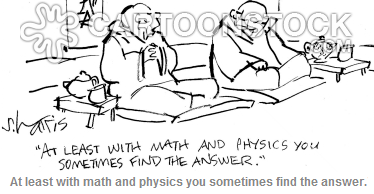Amber Larson, CC Liu, Wisdom Quarterly; Dr. Elizabeth Ashby, "Three Mental Faculties" (Buddhist Publication Society, Bodhi Leaves No. 44)
 |
| The brain is not the actual source of knowing, just a citta routing station (DK Books) |
Three Mental Modes
 |
| Emotional is not emotionally intelligent |
In Western Buddhist literature we often find intellect and intuition contrasted with one another, usually to the disadvantage of intellect. This is a very short-sighted view, for both are necessary for the understanding and practice of Dharma (Pali, Dhamma).
The intellect is the reasoning faculty in humans. It sees things in their right proportions. It investigates, analyzes, and discriminates. It accumulates knowledge and is inclined to forget that “knowledge” isn’t “wisdom.” Too much stress on intellect produces mental dryness, harsh judgments, and a lack of kindness (mettā) and compassion.
 |
| The Buddha's Brain (Hanson) |
Another danger is that investigation may become mere idle speculation. “Speculative views” about the subjects that the Buddha refused to define will lead us into the wilds of skeptical doubt, with all the mental suffering that involves. Another danger is opinionatedness -- the canker (mental defilement) of clinging to views as in the case of certain Brahmins of old who declared: “This alone is the truth; all else is falsehood!”
Therefore one of the early Zen Patriarchs went so far as to say:
Therefore one of the early Zen Patriarchs went so far as to say:
Do not seek after the true;
Only cease to cherish opinions.
The cherishing of opinions leads to disputes and to vexation, for we wound one another “with the weapon of the tongue.”
 |
| Jim Olson studies creativity and the human spirit in medicine proposing to treat cancer with scorpion venom. Those using synthetic chemical poisons and cancer-causing radiation call him crazy (onbeing.org) |
Intuition is the faculty that perceives truth without having it demonstrated or explained. It feels the truth before the intellect can grasp it and turn it into concepts. Hence intuition is closely allied to the emotions, and this constitutes a danger because the emotions go hand-in-hand with the imagination, and an imagined “truth” may be mistaken for “real truth.”
This happens because intuition functions on both the mundane and the transcendental plane (lokuttara). Our intuitions -- our instinctive feelings for and against people or ideas, and our useful “hunches” -- do not mean that we already possess bodhi, the transcendental intuition that “knows according to reality.”
This mundane intuition can be extremely deceptive and may lead to all kinds of trouble. It has to be examined in the light of a third mental faculty: intelligence. Intelligence is the ability to make skilful (kusala) use of the intellect. Lacking this, both intellect and intuition go astray.
 |
| Their emotions are like koans to me, with no easy way to solve their mysteries (CS). |
All Buddhist schools recognize the part intuition must play in the attainment of wisdom (gnosis) -- that sure certain knowing that “done is what had to be done.” The winning of enlightenment by intellectual means, “the way of the head” (jnana or nyana), is very, very rare, though some of the Great Disciples are known to have done so.
The Zen School in particular stresses the importance of intuition. A great feature of Zen is to accept life as it comes and to make the appropriate response. Note, it is the appropriate or right response. This does not mean acting on the first impulse that comes into one’s head. Most human impulses arise from greed, hate, or delusion [the three roots of all unskillful karma], and it is only the trained disciple who can act both spontaneously and rightly every time.
Impulsive action frequently ends in disaster, as in the case of Don Quixote. More





















































































































































































































































No comments:
Post a Comment